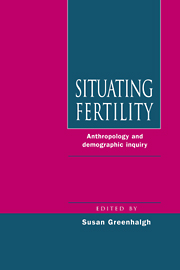Just below the glass-sheathed surface of Taiwan's modern cities, urban life is structured by webs of social ties that may be among the closest knit and farthest flung in the world. Family-centred, these personal networks bind urban residents to one another, to kin in the countryside, and to kin all over the globe, obliterating the neat social distinctions between urban and rural, domestic and foreign. Family networks undergird both the society and the economy of Taiwan. Over the past 35 years Taiwan's families have been if not the island's greatest, certainly its least appreciated resource. Family mobility strategies have both speeded development and tempered disparities due to ethnicity, class and spatial location. Yet these same families may be the greatest obstacle to further, capital-intensive development, for they are insular and atomistic, and their resources are limited and subject to periodic break-up. However, social change is underway that is likely to reduce the size of the family per se, and increase the importance of supra-family kinship networks. Such shifts would have far-reaching effects on the society and economy of the island.
